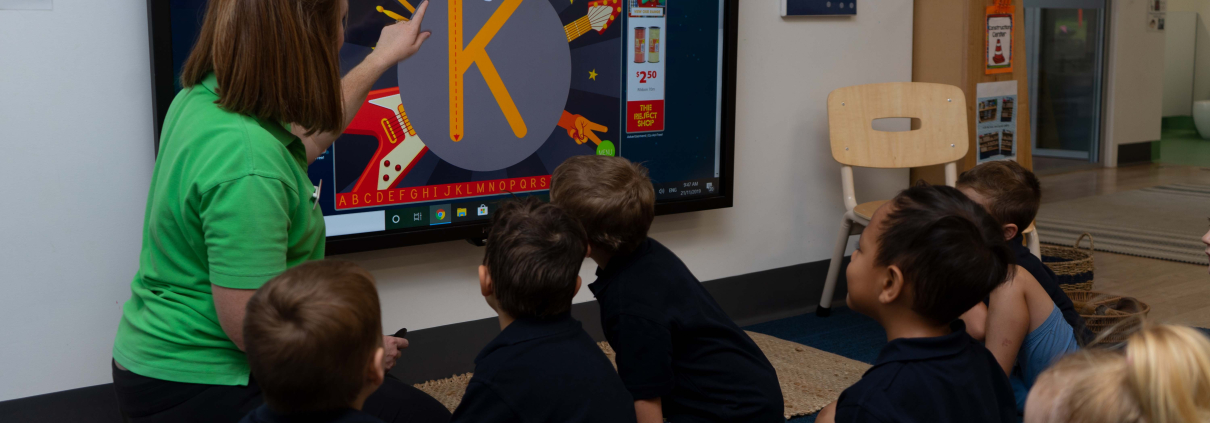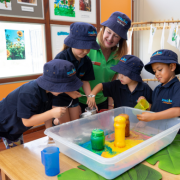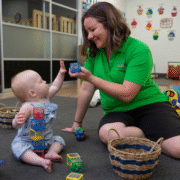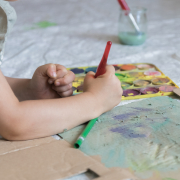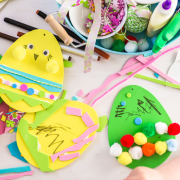Unlocking the Power of Phonics in Early Education
At Imagine Childcare, we believe in giving every child the best start to their educational journey. One of the most powerful tools we use in our long day care and kindergarten/Preschool programs is phonics. Phonics is a foundational skill that plays a key role in developing early reading, language, and communication abilities and supports confidence in early childhood.
In this week’s blog, we’re exploring the importance of phonetic sounds and how they help shape confident, capable learners—setting children up for success not only in school but in life.
What is Phonics?
Phonics is the method of teaching children the relationship between sounds and the letters or groups of letters that represent those sounds. Rather than memorising whole words by sight, phonics helps children decode words by sounding them out.
For example:
- A makes the sound “ah” as in apple. 🍎
- B makes the sound “buh” as in ball. ⚽
- S makes the sound “sss” as in sun. ☀️
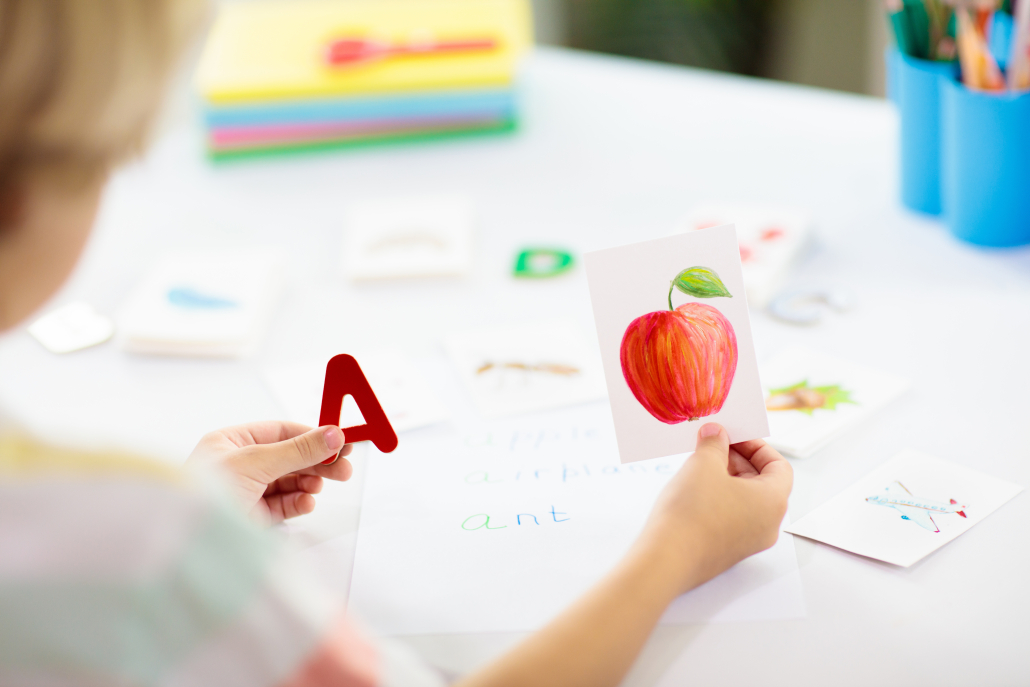
Understanding these sounds gives children the tools they need to decode unfamiliar words, improve their spelling, and become confident readers and communicators.
Research shows that phonics instruction significantly improves children’s reading and writing skills. At Imagine Childcare, we understand how critical this stage is in a child’s development. That’s why our qualified Educators and Early Childhood Teachers incorporate phonics and phonemic awareness into our daily routines.
Phonics helps children:
- Recognise and produce individual letter sounds
- Blend sounds together to read new words
- Identify sounds at the beginning, middle, and end of words
- Develop strong vocabulary and comprehension skills
- Grow in confidence and enjoy the process of learning
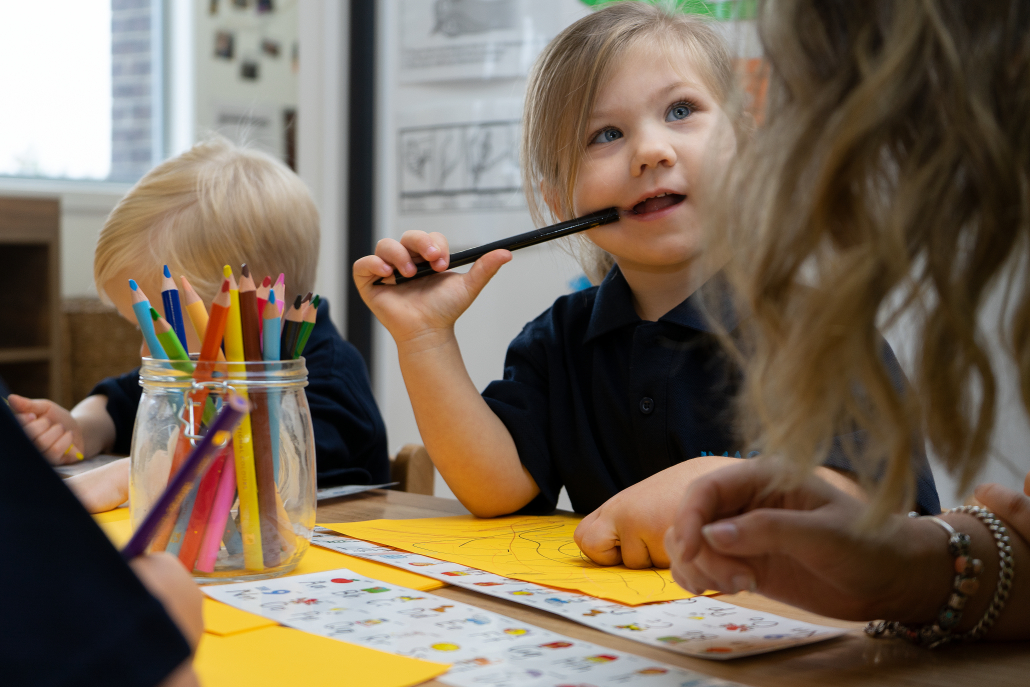
Our curriculum is guided by the Early Years Learning Framework (EYLF), which emphasises communication, literacy, and language development as key learning outcomes. Phonetic learning aligns beautifully with the EYLF’s vision for children to become confident and effective communicators.
Through play-based learning experiences that are both meaningful and engaging, we provide opportunities for children to explore sounds, language, and storytelling in ways that feel natural and fun.
At Imagine Childcare, we also follow the Abecedarian Approach – a research-based teaching method that supports language development through intentional, high-quality interactions. This includes strategies such as:
- Learning Games that promote turn-taking and communication
- Conversational Reading that fosters vocabulary and comprehension
- Language Priority in everyday routines
These strategies complement phonetic learning, helping children not only understand sounds but also use language to express ideas, ask questions, and build relationships.
Families play an important role in supporting their child’s early literacy journey. Here are a few simple ways you can reinforce phonics at home:
- Read with your child every day and talk about the sounds letters make
- Sing songs and nursery rhymes that play with rhyme and rhythm
- Play games like “I Spy” using beginning letter sounds
- Encourage your child to sound out words while reading signs, labels, and books
We are passionate about creating a love for learning that lasts a lifetime. By integrating phonics into our early education program, we empower children to build strong literacy foundations, setting them up for success as they move through kindergarten and beyond.
Discover how we bring the Early Years Learning Framework and the Abecedarian Approach Australia (3a) to life with phonics and more —follow us on Facebook to see meaningful learning in action.
- Imagine Childcare and Kindergarten Southport
- Imagine Childcare and Kindergarten Collingwood Park
- Imagine Childcare and Kindergarten Fairfield Waters
- Imagine Childcare and Kindergarten Flagstone
- Imagine Childcare and Kindergarten Holmview
- Imagine Childcare and Kindergarten Jensen
- Imagine Childcare and Kindergarten Marsden
- Imagine Childcare and Kindergarten Maryborough
- Imagine Childcare and Kindergarten Nerang
- Imagine Childcare and Kindergarten Rochedale South
- Imagine Childcare and Kindergarten West End
- Imagine Childcare and Kindergarten Coburg
- Imagine Childcare and Kindergarten Cranbourne
- Imagine Childcare and Kindergarten Doncaster
- Imagine Childcare and Kindergarten Oakleigh South
- Imagine Childcare and Kindergarten Werribee
- Imagine Childcare and Kindergarten Blakeview
- Imagine Childcare and Preschool Ballina
- Imagine Childcare and Preschool Blueridge Park
- Imagine Childcare and Preschool Grafton
- Imagine Childcare and Preschool Nowra
- Imagine Childcare and Preschool Orange
- Imagine Childcare and Preschool Tamworth
Imagine Childcare and Kindergarten Smithfield, Imagine Childcare and Kindergarten Melton, and Imagine Childcare and Kindergarten Andergrove are opening soon. follow them on Facebook to receive regular updates on their progress.

